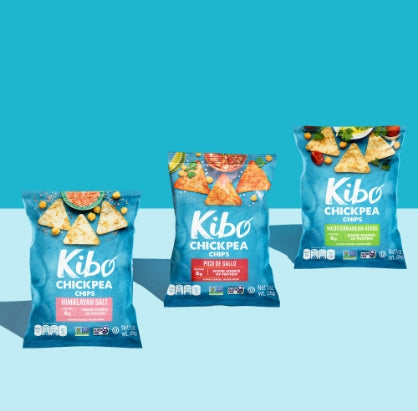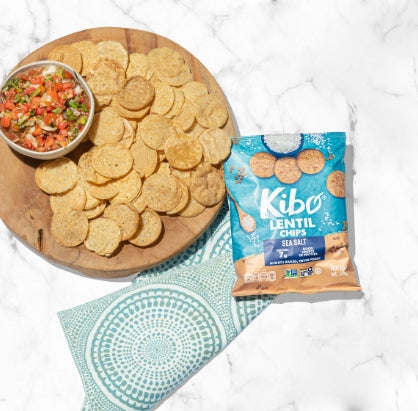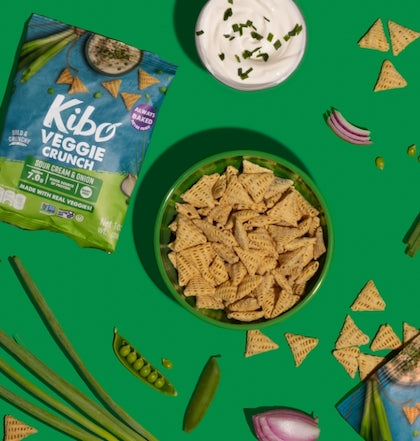It’s fall—the weather’s cooling down, and maybe you’re getting outside more for runs, hikes, and fresh air activities. Or now that school’s started, maybe you’re back in sports.
If you lead an active lifestyle and tend to lean vegetarian, vegan, or otherwise plant-based, it’s important to make sure you’re getting all your macro and micronutrient needs met to support endurance in your exercise session, strength in your muscles, and healthy fitness all around!
Whether you want to beef up without the beef, or just enjoy outdoor fun to its fullest, read on for our complete guide to plant-based nutrition for an active lifestyle.

Plant-Based Protein
First things first! By now you probably know that protein is hugely important for building strength and keeping you satiated. The amino acids in protein help grow and repair your muscle tissue, particularly after intense strength exercises and muscle tears. Protein helps you build lean muscle, burn fat instead of muscle, and process carbs and fat more efficiently, supporting healthy weight management in tandem with your fitness routine.
Yet many people, especially if they’ve limited animal products in their diet, may find it tricky to get the optimal protein needed to fuel their fitness goals and adventures. So how do the best vegan athletes and outdoor adventurers do it?
High Protein On a Plant-Based Diet
Plant-based protein sources include legumes like lentils, chickpeas, beans, and peas, as well as tofu, tempeh, seitan, quinoa, amaranth, nuts, nutritional yeast, seeds, and spirulina.
For an active lifestyle, most adults should aim for .55 - .9 grams of protein per pound of body weight per day, and for an athlete or during periods of intense workouts or marathon training, that number might be on the higher end of the range. Aim to get protein within an hour of two of your workout to help build and repair muscles.
For a 150-pound, moderately active adult, a day’s worth of protein meals might look like*:
- A plant-based protein shake with peanut butter for breakfast (33 grams)
- A soba noodle salad with tofu, cashews and broccoli for lunch (25 grams)
- Kibo Lentil Chips or Chickpea Chips as a snack (6-7 grams)
- Lentil and black bean chili for dinner (26 grams)
*Talk to a nutritionist to pin down your exact protein needs and come up with a customized meal plan that’s best for your unique health!
Snacks and protein supplements can help fill in nutritional gaps. With 6 grams of sustainable plant protein from legumes, Kibo Chips are a good protein snack to help keep you strong and satiated. Hummus or bean dip, seed and nut butter protein balls, and protein smoothies are other great options for supplementing protein in between meals.
Free Form Amino Acids
In addition to protein, which is made up of amino acids, you can also find “free” amino acids in many pre-workout supplements. Here are some of the amino acids that can benefit your fitness goals, some of which may be more important for vegetarians to pay attention to:
Creatine
Popular in sports supplements, creatine is found in your body’s muscles and brain. It might help you do more work during your workout, translating to bigger gains in muscle mass and overall performance. People like vegetarians, who might have lower creatine levels, could benefit the most from taking creatine.
Beta Alanine
Ever wondered why some pre-workout supplements make your lips and fingers tingle? That itch is due to beta alanine, an amino acid. Beta alanine is often included in exercise supplements due to its ability to significantly reduce muscle fatigue during resistance training. It helps create carnosine, an important amino acid for muscle function, and studies have shown that vegetarians tend to have less carnosine in their muscles than those who consume meat.
BCAAs
Branched chain amino acids are a group of three essential amino acids: leucine, isoleucine, and valine. These BCAAs can help increase muscle growth, decrease muscle soreness and fatigue, and reduce exercise fatigue. That’s why you’ll often find BCAAs included in pre-workout supplements.
Healthy Carbs
Carbohydrates help provide energy to fuel your workouts, and complex carbs like fiber help slow down the glucose burst for more lasting energy. If you need quick energy for your run, try a banana, fruit smoothie, or oatmeal with blueberries. Long hike or portage ahead? Pack carbs with you in the form of an oat bar, apple, or trail mix to keep you sustained.

Vitamin B12
Vitamin B12, also known as cobalamin, is an essential nutrient that comes almost exclusively from animal-based sources (like salmon and eggs), so vegetarians and those following a plant-based diet could be at a high risk for B12 deficiency. Since symptoms can include weakness and fatigue, it’s important to address a deficiency if you want to exercise to your fullest potential.
In addition to B12 supplements for vegetarians, many multivitamins will contain B12 and other micronutrients that vegetarians are likely to be low in, such as vitamin D3 and DHA, an essential Omega-3 fatty acid.
Electrolytes
Did you know we have electricity in our bodies? Electrolytes are minerals that carry an electric charge when dissolved in water. Electrolytes like magnesium, sodium, potassium, phosphate, and chloride regulate many functions in our bodies that go hand in hand with exercise, like hydration balance and muscle contraction.
We lose electrolytes when we sweat, so if you’re doing an intense workout or exercising for over 30 minutes, it’s important to replenish electrolytes and water with an electrolyte drink.

Caffeine
Nope, it’s not an essential nutrient, but a little caffeine 30-60 minutes before you’re active can help give you the extra boost you need for your workout or outdoor adventure. Most studies indicate that 0.9-2.7 mg of caffeine per pound of body weight can significantly enhance a bout of exercise. Matcha, green tea, black tea, white tea, and black coffee all contain caffeine along with plenty of antioxidants to help fight inflammation.
Adaptogens
Adaptogens are certain mushrooms, roots, herbs, and other plants that help your body adapt to stress and regulate the stress hormone cortisol. Certain adaptogens have been researched particularly for their exercise benefits like endurance, muscle strength, muscle recovery, aerobic capacity, or energy. Some of the most touted adaptogens for exercise include:
- Cordyceps
- Ashwagandha
- Astragalus
- Rhodiola
- Schisandra
- Ginseng
Many workout supplements, including vegan workout supplements, feature a mix of natural caffeine, amino acids, and adaptogens to help cover your bases.
Takeaways
Plant-based nutrition isn’t one size fits all. Your macro nutritional needs like protein intake and carbs will depend on your body type and the type and intensity of your activity. It’s always a good idea to talk to a doctor or nutritionist to get your exact needs figured out.
That being said, anyone with an active lifestyle who follows a plant-based diet should plan on a few things, like high protein to help build and repair lean muscle, amino acids that might be missing in your diet, electrolyte drinks to replenish and balance hydration, and complex carbs with healthy fiber to sustain you during your long hikes, races, and adventures.
From there, extra help in the form of caffeine and adaptogens can boost your energy or muscle function for your best workout yet!
Sources:
National Library of Medicine, Omega-3 polyunsaturated fatty acids and vegetarian diets
National Library of Medicine, Creatine supplementation and exercise performance: a brief review
Healthline, 7 Nutrients That You Can’t Get from Plants
Healthline, Should You Drink Coffee Before Your Workout?
National Library of Medicine, Vitamin B12 sources and bioavailability
MDPI, Common Ingredient Profiles of Multi-Ingredient Pre-Workout Supplements
Taylor & Francis Online, International society of sports nutrition position stand: Beta-Alanine
 Reviews
Reviews







